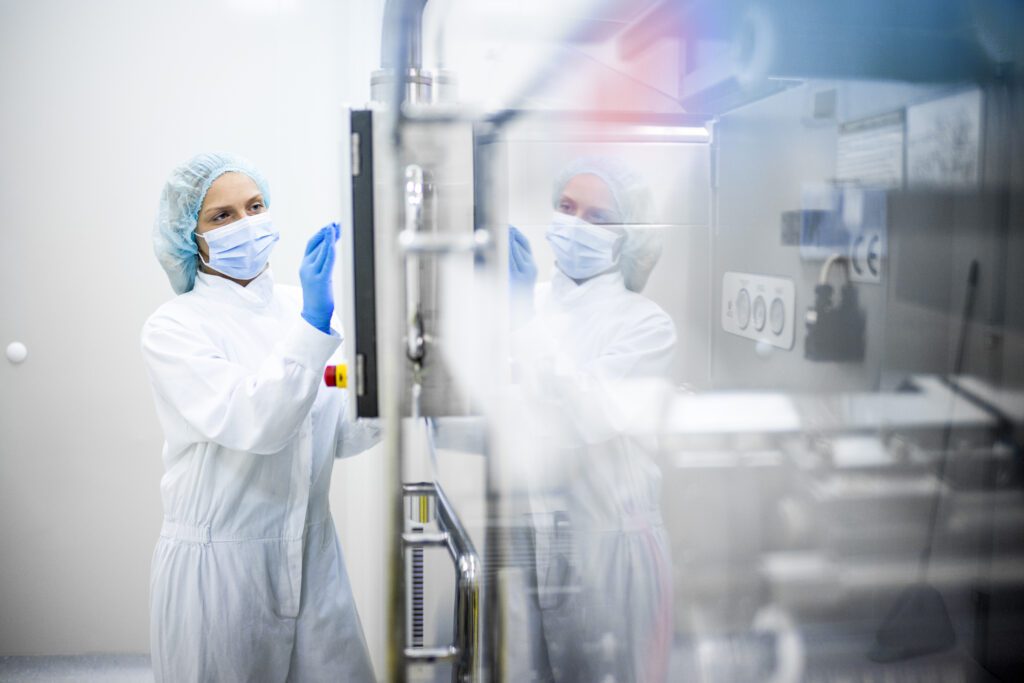The COVID-19 pandemic laid bare the vulnerabilities of global supply chains, especially in the biopharmaceutical sector.
“Nobody ever could have envisioned a global pandemic that would shut down airports, airlines, shipping terminals,” said John F. Crowley, the newly installed President and Chief Executive Officer of the Biotechnology Innovation Organization (BIO), in an interview with Bio.News. “We were able to reimagine a lot of those supply chains and break down some enormous barriers to access,” thanks in part to programs like Operation Warp Speed, which accelerated the development of vaccines, therapeutics, and diagnostics.
“But next time, we may not be as fortunate, so we have to be prepared,” he said. “Having those facilities, having that capacity and those capabilities in the United States is going to be absolutely critical to the public health going forward, with or without a pandemic.”
For Crowley—a former U.S. Naval Reserve intelligence officer, and a biotech founder and CEO—bolstering America’s biomanufacturing capabilities is a key priority of his term leading the largest biotech trade association in the United States. But why does that matter, and how do we get there?
The state of biopharma supply chains
In recent years, “much of the biopharmaceutical manufacturing in the United States has gone abroad, and we’ve also become incredibly reliant on a contract manufacturing industry,” explained Crowley, who had a long career at several major biopharmaceutical companies before founding Amicus Therapeutics to find treatments for rare genetic diseases.
According to BioProcess International, which tracks more than 16.5 million liters of “active production capacity at more than 1,500 facilities worldwide,” around 37% of bioprocessing capacity is produced in the U.S. and Canada, 33% in Europe, and 25% in Asia-Pacific, including China and India. Furthermore, according to a recent survey conducted by Cytiva, 47% of industry executives said their country is “moderately or highly dependent on the import of drugs, which illustrates the sheer expanse of the drug production and delivery process.”
This global supply chain has helped America’s innovative companies, large and small, access the supplies they need and focus their hard-won dollars on R&D. This is especially true for small and emerging companies, which can utilize contract development and manufacturing organizations (CDMOs) and other partners and use their money for research rather than investing in brick-and-mortar construction, workforce education and development, and highly technical areas. And for larger companies, supply chain diversification “ensures they have access to more developed and cutting-edge technologies than manufacturing,” and flexibility to scale up capacity to meet demand, Crowley noted.
But what happens when this supply chain is upended by a pandemic—or in the future, something like bioterrorism, or, say, volatile geopolitics such as what we’re seeing with China?
“We’ve seen the consequences of having critical manufacturing sectors, especially those as crucial as medicines, located offshore,” he said.
Crowley recounted the difficulties faced in securing medications during the pandemic—not only for clinical trials at Amicus Therapeutics, but also for his own children. Many of these medications were manufactured in one country, and shipped to a second and sometimes third country before reaching the U.S.
“We were able, with just Herculean efforts from our team, to overcome that—but that was for a while, our greatest threat, and could have had the greatest impact on people’s lives,” he said.
Why biotechnology must be a national security imperative
This is why “biotechnology is a national security imperative,” asserted Crowley. And boosting domestic biomanufacturing—from assays and testing equipment to active pharmaceutical ingredients to branded and generic medicines alike—is vital “to ensure that people living in the United States have a continuous supply of the medicines they need so that nobody ever has to go a day without [them].”
“The strength of our biotechnology industry is a testament to our nation’s capability to protect and enhance the lives of its citizens and those around the globe,” he added.
But the dilemma is nuanced. Moving too hastily to localize biomanufacturing without a strategic plan could be as detrimental as inaction. It’s critical to plan carefully in order to secure the future of America’s biomanufacturing without jeopardizing the current supply chain and access to essential materials for R&D, which are especially crucial for the innovation pipeline of emerging biotech companies, as Crowley noted.
As a first step, we need to audit the current state of biomanufacturing to understand the breadth of the challenge and to identify opportunities for growth and innovation. While it’s too soon to talk about a specific policy prescription, Crowley continued, he compares the challenge and the potential solution to what occurred in the domestic semiconductor and chips manufacturing sector, which shifted overseas and required legislation and significant government investment (via the CHIPS Act) to return it to the U.S.
“These cutting-edge chips were invented in the United States,” he said. “And the manufacturing all left.”
Similarly: “If we’re not careful and thoughtful, and we don’t approach this with a great sense of urgency and lean into this challenge aggressively, we’re going to look back and realize that we’ve lost the ability to make medicines, and for patients in the United States to have access to medicines,” he said. “Let’s make sure we have the capabilities and an arsenal of technologies to respond to what could be an existential threat.”
Crowley’s narrative is not just a call to action, but a reminder of the potential consequences of inaction.
“If we don’t do it, and we erode the strength of the biotechnology industry, even unintentionally, there are other countries in the world who have stated that they intend to become the medicine chest of the world—not only for their own people, for their public health, but as an instrument of national power and influence,” he concluded. “And we can’t let that happen. This has to continue to be an American industry.”




